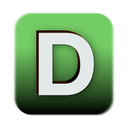A new version of Dioptas has been released, with a couple of bugfixes and several new features. Notably the ability to load nexus detector files.
The executable versions for Windows, Mac OS X and Linux can be downloaded from https://github.com/Dioptas/Dioptas/releases or here
Anaconda Packages will be made available in the next couple of days and can be downloaded by using “conda install dioptas -c cprescher”.
New features:
- added a batch integration view (thanks to hard work of Mikhail Karnevskiy @ DESY). Here you can batch integrate your collection series and interact with a contour or 3D plot of the integrated patterns -> this also includes visualization of phases lines
- reading ESRF hdf5 data files is now possible
- combined patterns from multiple configurations can now be saved as a file (save button on the upper right)
Bug Fixes:
- no longer remove integrated intensities below 0, instead now only values with equal to 0 are removed (this should fix all the issues with background corrected images)
- reimplemented the automatic file recognition algorithm of the autoprocess integration function. This should now work much more reliable also on network drives and linux systems
- QT high dpi scaling is now only activated for Windows and Mac OS X -> Disabling it on Linux fixes the display bugs encountered here and it is usable with low and high dpi screens (it was not working correctly)

 My current workplace, the University of Cologne, grants every year 3 “future” awards to individual researchers based on their excellent research activities in the last couple of years. Each of the prices is awarded to a senior researcher, who are usually already Professors, and a “junior” researcher, who are mostly post-doc or Junior-Professors. There are 3 different awards for the different scientific disciplines: the Max Delbrück-Award for Nature- and Lifesciences, the Leo Spitzer-Preis for Humanities and the Hans Kelson-Award for Law and Economic Sciences.
My current workplace, the University of Cologne, grants every year 3 “future” awards to individual researchers based on their excellent research activities in the last couple of years. Each of the prices is awarded to a senior researcher, who are usually already Professors, and a “junior” researcher, who are mostly post-doc or Junior-Professors. There are 3 different awards for the different scientific disciplines: the Max Delbrück-Award for Nature- and Lifesciences, the Leo Spitzer-Preis for Humanities and the Hans Kelson-Award for Law and Economic Sciences.